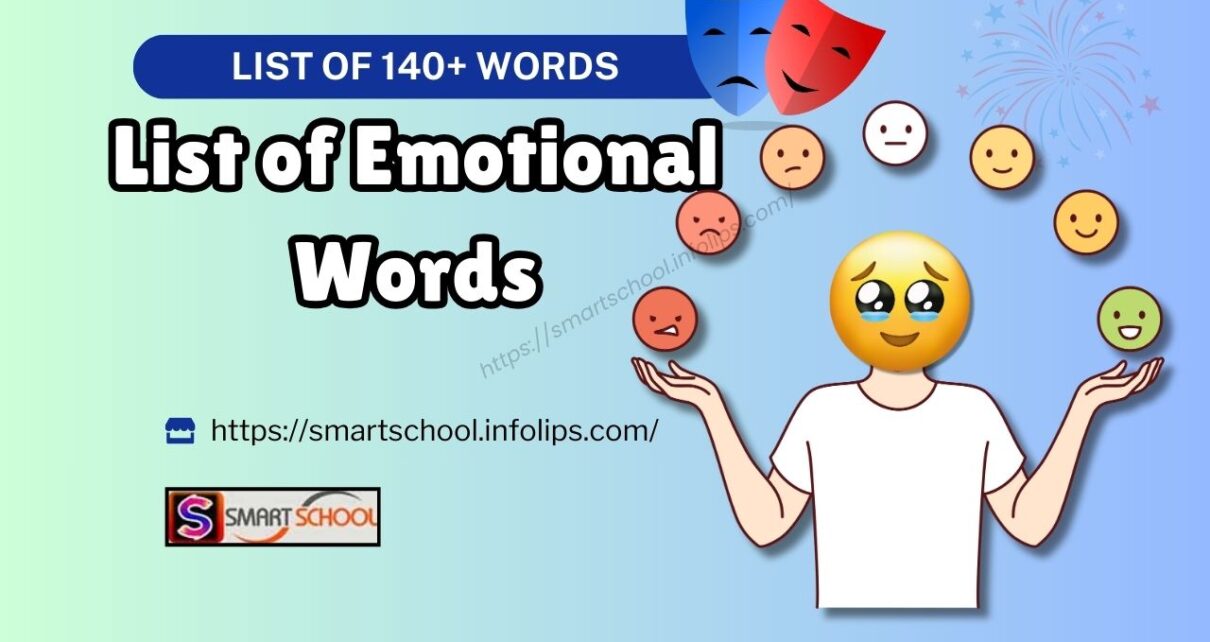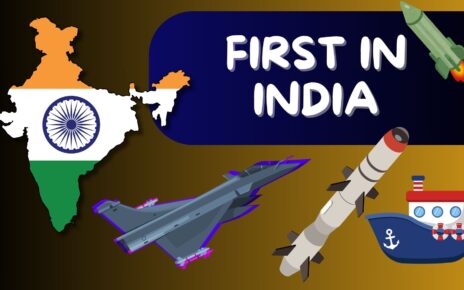Emotional Words : What They Are & Why They Matter
What Are Emotional Words?
Emotional words (or feeling words) are vocabulary used to describe human emotions—like happy, angry, anxious, or proud. They help us express our inner experiences clearly.
Why Do We Use Them?
- Better Communication – Instead of saying “I feel bad,” saying “I feel frustrated” helps others understand us.
- Self-Awareness – Naming emotions reduces confusion and helps manage feelings.
- Stronger Relationships – Sharing emotions builds trust and empathy.
- Mental Health – Suppressing emotions harms well-being; expressing them helps healing.
Benefits of Using Emotional Words
✔ Reduces Misunderstandings – Precise words prevent assumptions.
✔ Improves Emotional Intelligence – Helps recognize and regulate emotions.
✔ Encourages Empathy – Others respond better when they “get” your feelings.
✔ Boosts Writing & Storytelling – Adds depth to characters and narratives.
How to Use Them Effectively?
- Keep a feelings journal to expand emotional vocabulary.
- Use “I feel…” statements in conversations.
- Observe body language-emotions aren’t just words but physical reactions too.
Final Thought:
Emotional words are like a bridge between hearts and minds. The more we use them, the better we connect-with ourselves and others. 💙
Positive – Emotional Words
- Happy – The children were happy playing in the park.
- Joyful – Her laughter made the room feel joyful.
- Excited – He was excited to open his birthday gift.
- Proud – She felt proud after winning the competition.
- Grateful – I am grateful for my family’s support.
- Hopeful – He remained hopeful despite the challenges.
- Content – Sitting by the beach, she felt completely content.
- Loving – The mother gave her child a loving hug.
- Peaceful – The sunset made the evening feel peaceful.
- Amused – The comedian’s jokes left the crowd amused.
Negative – Emotional Words
- Angry – He was angry after the unfair decision.
- Sad – She felt sad when her pet went missing.
- Anxious – Waiting for the results made him anxious.
- Frustrated – The slow internet left her frustrated.
- Jealous – He felt jealous when his friend got praised.
- Guilty – She was guilty for forgetting her friend’s birthday.
- Lonely – Moving to a new city made him feel lonely.
- Ashamed – He was ashamed of his mistake.
- Disappointed – She was disappointed with her exam score.
- Embarrassed – Tripping on stage left him embarrassed.
Mixed/Complex Emotions
- Confused – The complicated instructions left her confused.
- Nostalgic – Visiting his old school made him nostalgic.
- Bittersweet – Graduation day was a bittersweet moment.
- Overwhelmed – The sudden praise left her overwhelmed.
- Relieved – Finding his lost wallet made him relieved.
- Hesitant – She was hesitant to try the spicy food.
- Vulnerable – Opening up made him feel vulnerable.
- Resentful – He grew resentful after being ignored.
- Regretful – She was regretful about her harsh words.
- Defensive – He became defensive when criticized.
Energetic/Intense – Emotional Words
- Thrilled – She was thrilled to meet her favorite celebrity.
- Enthusiastic – The team was enthusiastic about the new project.
- Passionate – He spoke in a passionate voice about his dreams.
- Furious – The unfair treatment made her furious.
- Terrified – The loud thunder left the dog terrified.
- Ecstatic – Winning the lottery made them ecstatic.
- Panicked – She panicked when she lost her phone.
- Determined – He was determined to finish the marathon.
- Restless – The long wait made him restless.
- Awe-struck – The grand canyon left them awe-struck.
Calm/Subtle Emotions
- Serene – The quiet lake looked serene at dawn.
- Melancholic – The old song made her feel melancholic.
- Reflective – He was in a reflective mood after the trip.
- Wistful – She felt wistful thinking about her childhood.
- Tranquil – The garden was tranquil in the morning.
- Mellow – The soft music put him in a mellow mood.
- Thoughtful – She gave him a thoughtful gift.
- Somber – The funeral had a somber atmosphere.
- Composed – Despite the chaos, she remained composed.
- Patient – The teacher was patient with the students.
Social/Relational – Emotional Words
- Loved – The child felt loved in his mother’s arms.
- Betrayed – He felt betrayed after discovering the lie.
- Trusting – She was always trusting of her friends.
- Suspicious – His strange behavior made her suspicious.
- Admired – The leader was widely admired for his honesty.
- Rejected – She felt rejected after the job refusal.
- Supported – He felt supported by his teammates.
- Isolated – Working from home made her feel isolated.
- Connected – The reunion made them feel connected again.
- Sympathetic – She was sympathetic toward his struggles.
Bonus: Physical Sensation-Based Emotions
- Hungry (Hangry!) – He became hangry after skipping lunch.
- Exhausted – After the long hike, they were exhausted.
- Restless – The boring lecture made the students restless.
- Giddy – The surprise party made her giddy with excitement.
- Numb – The shocking news left him feeling numb.
Expanded List of Emotional Words
Positive Emotions :
- Blissful – Their vacation was blissful and relaxing.
- Jubilant – The fans were jubilant after the victory.
- Elated – She was elated to receive the scholarship.
- Optimistic – Despite setbacks, he remained optimistic.
- Cherished – The old photo was a cherished memory.
- Radiant – Her smile was radiant on her wedding day.
- Tickled – The joke really tickled his funny bone.
- Triumphant – The team felt triumphant after the win.
- Enchanted – The fairy tale left the kids enchanted.
- Rejuvenated – The spa day left her feeling rejuvenated.
Negative Emotions
- Agitated – The constant noise made him agitated.
- Despondent – After the loss, he was despondent.
- Dreadful – The horror movie was dreadful to watch.
- Exasperated – The repeated mistakes left her exasperated.
- Bitter – He felt bitter about the missed opportunity.
- Hollow – The breakup left her feeling hollow inside.
- Miserable – The cold rain made him miserable.
- Powerless – She felt powerless to change the situation.
- Sullen – His sullen expression showed his disappointment.
- Wounded – The harsh words left her feeling wounded.
Mixed/Complex Emotions
- Ambivalent – He was ambivalent about taking the job.
- Tormented – The guilt tormented him for years.
- Disillusioned – The failed promise left her disillusioned.
- Insecure – She felt insecure about her appearance.
- Apprehensive – He was apprehensive about the interview.
- Rueful – She gave a rueful smile after the mistake.
- Disheartened – The rejection left him disheartened.
- Pensive – He was in a pensive mood after the movie.
Energetic/Intense Emotions
- Exhilarated – The roller coaster ride left them exhilarated.
- Fervent – His fervent speech inspired the crowd.
- Zealous – She was zealous about her new hobby.
- Livid – The broken phone made him livid.
- Horrified – The accident scene left her horrified.
- Manic – The last-minute preparations made her manic.
- Frenzied – The shoppers were in a frenzied rush.
- Tenacious – Despite injuries, the athlete remained tenacious in his training.
- Impassioned – The activist gave an impassioned speech about equality.
- Awestruck – The newborn baby left the parents awestruck.
Calm/Subtle Emotions
- Placid – The lake looked placid under the moonlight.
- Dreamy – The soft music put her in a dreamy mood.
- Languid – The hot afternoon made everyone feel languid.
- Meditative – The yoga session left him in a meditative state.
- Sober – The serious news put the room in a sober silence.
- Collected – Despite the chaos, she stayed collected.
- Muted – His reaction was surprisingly muted after the win.
- Subdued – The rainy weather made the party feel subdued.
- Centered – After meditation, she felt calm and centered.
Social/Relational Emotions
- Adored – The little puppy was adored by everyone.
- Abandoned – The old house had an abandoned, eerie feel.
- Respected – The wise elder was deeply respected in the village.
- Skeptical – She was skeptical about the too-good-to-be-true offer.
- Revered – The ancient temple was revered by pilgrims.
- Ostracized – After the scandal, he felt ostracized by his peers.
- Nurtured – The artist’s talent was nurtured by her mentor.
- Alienated – His radical views left him alienated from the group.
- Intimate – The candlelit dinner created an intimate atmosphere.
- Compassionate – The nurse was compassionate toward her patients.
Physical Sensation-Based Emotions
- Jittery – Too much coffee made her hands jittery.
- Drained – The long workweek left him emotionally drained.
- Fidgety – The suspenseful movie made the audience fidgety.
- Lightheaded – Skipping meals made her feel lightheaded.
- Tingling – His foot had a tingling sensation after sitting too long.
- Heavy-hearted – She left the hospital with a heavy-hearted sigh.
- Butterflies (in stomach) – Before the speech, he had butterflies.
- Choked up – The farewell speech left everyone choked up.
- Nauseous – The bumpy car ride made her feel nauseous.
Additional Nuanced Emotions
- Whimsical – The fairy-tale wedding had a whimsical charm.
- Forlorn – The stray dog looked forlorn in the rain.
- Sheepish – He gave a sheepish grin after the silly mistake.
- Morose – The gray weather put him in a morose mood.
- Giddy – Winning the prize made her giddy with joy.
- Stoic – Despite the pain, he remained stoic.
- Perturbed – The strange noise left her perturbed.
- Disoriented – Waking up in a new place, he felt disoriented.
- Smug – His smug smile annoyed his rivals.
- Bewildered – The complex riddle left the students bewildered.
Why This Expanded List Matters
- Precision: More words = better emotional articulation (e.g., “forlorn” vs. “sad”).
- Empathy: Helps validate subtle feelings (e.g., “disillusioned” after unmet expectations).
- Creativity: Writers/artists can depict richer emotional landscapes.
- Therapy: Specific terms aid in counseling and self-reflection.
Tip: Bookmark this list for writing, journaling, or improving emotional literacy! 🌟
Let me know if you’d like examples or further refinements. 😊
Types of Sentence in Marathi Examples – Check your answers
.
मराठी इयत्ता ४थी – सर्व धड्यांचे प्रश्न-उत्तर – All Lesson Question Answers
Essay Topics List in Marathi, Hindi, and English:
Question Answer for All Standard
मराठी निबंध
हिंदी निबंध
English Essay
Accordion title 5
Other Essays:
➥ Essay on My School in English
➦ मेरा विद्यालय पर निबंध
➥ Essay on my favorite festival in Marathi – Ganapati
➦ Essay on tree in Marathi
➥ माझी शाळा निबंध मराठी
➦ My Favourite Animal Essay In Marathi (Dog)
➥ जर मी ढग असतो तर :
इतर लिंक्स :
➥ मराठी रंग :
➦ विशेषण व विशेषणाचे प्रकार
➥ सर्वनामाचे प्रकार
➦ Modal Auxiliary
➥ Types of Figure of speech



